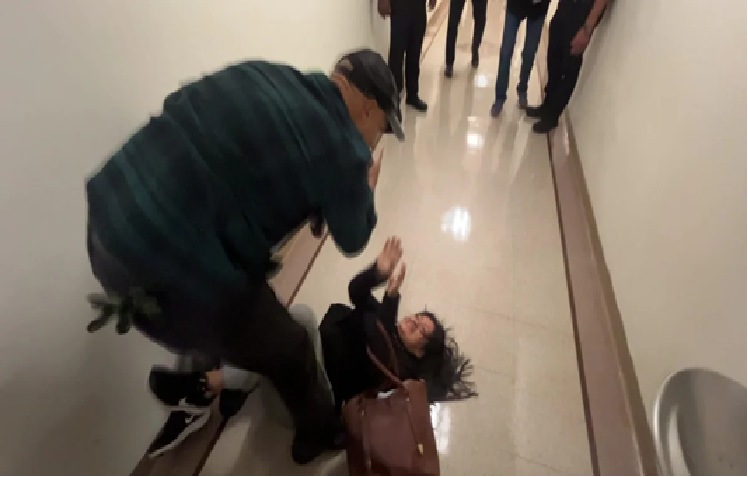Today’s world of 24-hour, partisan-slaved cable networks and an ideologically re-enforcing blogosphere is dominated by catch phrases that frequently create more obfuscation than illumination. The term “sanctuary city” is exactly such a catch phrase.
What does it really mean to be a “sanctuary city?” There are really only two public policy issues that are relevant to this issue.
The first issue relates to the procedures followed when a person is taken into custody. When that happens, most law enforcement agencies attempt to make some determination about the immigration status of the person.
Making that determination is not as straight forward as one may think. About 40% of the individuals in the country illegally came here under a valid visa that has expired. Those visas are frequently extended. Attempting to determine if a visa has been extended or not is not a simple matter. Similarly, under the Citizenship Act of 2000, if a child has one parent that is U.S. citizen, they are automatically eligible for citizenship under certain circumstances even if they were not born in the U.S. And, of course, under President Obama’s executive order, persons here illegally, but brought here as children are not subject to deportation under certain circumstances. President Trump recently extended that executive order. The result is that, in many cases, you need an immigration lawyer to figure out if a person is in the country legally or not.
If it is determined that a person in custody is in the country illegally, that information is passed along to ICE. Federal law prohibits cities from banning this type of communication between their police departments and ICE.
In most cases ICE does nothing with this information because it does not have the resources to deport every person here illegally. Normally ICE focuses only on those with a criminal record. In that case, ICE may request that the city hold the person until ICE can pick them up. Interestingly, there is no requirement in federal law for the city to hold a person for ICE, but most do so voluntarily.
However, some cities, like Austin and San Francisco have refused to cooperate with ICE and detain prisoners in their custody. Some have attempted to parse the issue by holding only prisoners who have been arrested for a serious offense.
SB4, the immigration law recently enacted by the Texas Legislature, requires cities to honor ICE detainer requests. It is hard for me to see the argument against this requirement. I am surprised federal law does not already require it. It is absurd for a city to release a person in custody that ICE has identified for deportation, requiring ICE to then track them back down.
Some have argued that ICE is targeting individuals that pose no real threat. I have not seen any data on the type of crimes committed by those ICE is deporting, but it seems unlikely given their limited resources ICE is wasting its time with minor offenses. But regardless cities should not be in the business of second guessing ICE’s determinations about who should be deported.
The second issue is more complicated and deals with the procedures for when a police officer can and should inquire about a person’s immigration status. Many police departments, including Houston, have a policy that prohibits police officers from asking a person about their immigration status until that person is taken into custody. Interestingly, until a few years ago, the Texas Department of Public Safety had the same policy. SB4 prohibits cities from keeping its police officers from inquiring about a person’s immigration status if that person is lawfully “detained.”
“Detention” is different from being arrested. When a police officer pulls you over for a traffic violation, you have been detained. So, this controversy is really about whether police officers are going to inquire about immigration status when a person is stopped for an otherwise legitimate reason, like a taillight being out.
The problem arises in trying to determine which individuals who have been detained, i.e., stopped, will be asked about their immigration status. The Supreme Court has consistently ruled that police cannot discriminate during traffic stops based on race or nationality. And, in fact, SB4 prohibits a police officer from using “race, color, religion, language or national origin” as a basis for asking about a person’s immigration status.
So exactly how is a police officer going to decide who to ask about their immigration status without considering the person’s nationality or language? Anytime an officer asks about immigration status, he or she is opening themselves up to a civil rights lawsuit.
And there is another problem. Let’s assume that an officer stops a person for speeding and during the stop that person admits that they are not in the country legally. What then?
If the officer arrests the person for being in the country illegally, there is literally nothing to do with the person. The County jail will not take them. ICE will not take them. In fact, there is a complicated legal issue as to whether local police officers even have the lawful Constitutional authority to make arrests under federal immigration law in the first place. So, what is the point of asking?
The bottom line is that local police are not going to be asking detainees about their immigration status except in very extraordinary circumstances, SB4 notwithstanding.
Immigrate advocates argue police officers asking about immigration status will chill immigrants from reporting crimes and being willing to be witnesses in criminal cases. SB4 attempts to deal with that issue by prohibiting officers from asking crime victims or witnesses about their immigration status.
There have been several reports that the number of crimes being reported by the immigrant community has declined recently. Opponents of SB4 have attributed this decline to the bill’s passage which seems pretty far-fetched, considering it has not even gone into effect. I have no doubt there is a decline, but that is more likely caused by the overall tone of the of national immigration debate, not one specific bill.
The bottom line is that SB4 is going to have little effect either way on the immigration challenges we are facing. Texas, like other jurisdictions, has entered the immigration fray out of frustration with Congress’ inability to act. There is no question that allowing millions to enter the country illegally over the last three decades has caused many problems: accidents with uninsured motorists, criminal gangs slipping into the country with immigrants coming here to work, overcrowded schools and public hospitals . . . the list goes on and on. Congress’ failure to enact comprehensive reform is an inexcusable dereliction of their duty.
The principal elements for such reform are clear and supported by an overwhelming majority of Americans. Secure the border. Provide a procedure for those here illegally, but are contributing and not criminals, to get legal or get out. Create an enforceable temporary worker program. Set reasonable annual immigration quotas. It is not rocket science.
But until Congress acts expect more SB4s, more litigation, more hardship for US citizens forced to deal with the problems caused by illegal immigration, more uncertainty for immigrants, and more acrimony over a problem that is 100% self-inflicted by our worthless, do-nothing Congress.
[If you would like to be added to my distribution list, please send me your email address at weking@weking.net. Also, previous emails are posted at www.BillKingBlog.net]





